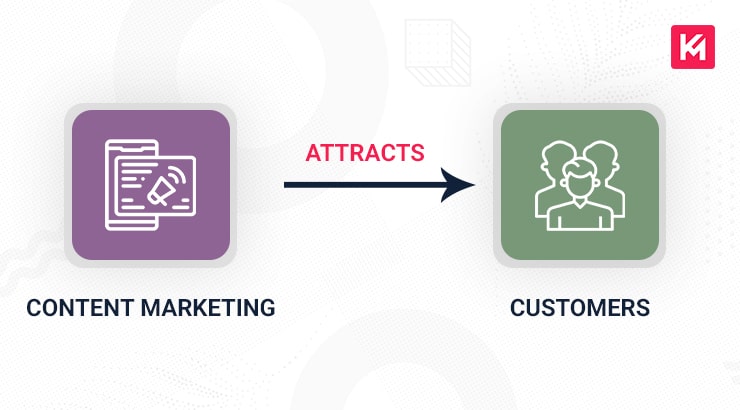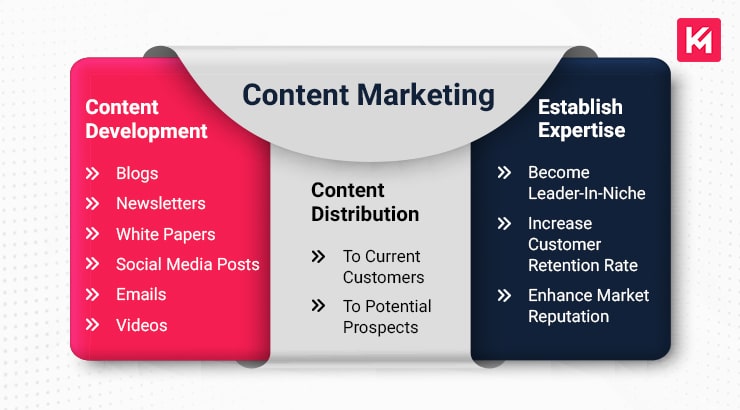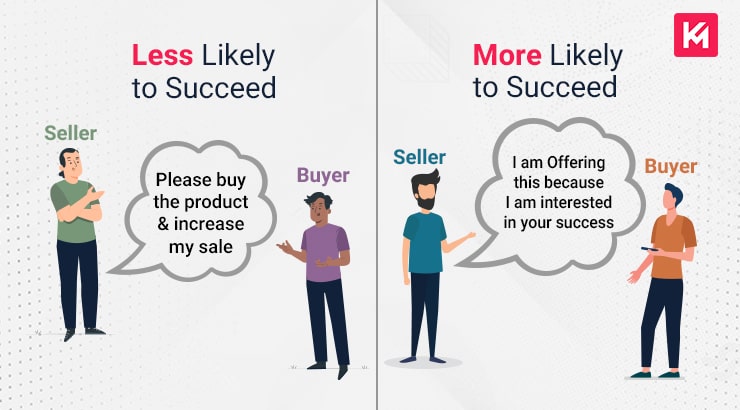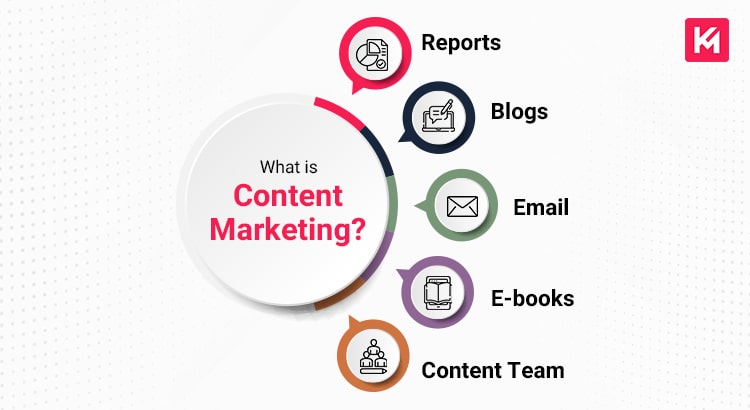Content marketing is one of the effective tactics to attract meaningful traffic and retain one-time buyers. This aim is achieved by creating and sharing relevant articles, videos, podcasts and other media. This method is considered adequate as it helps to make you appear trustworthy and credible in the eyes of your targeted audience. Besides, it helps create brand awareness for your business to ensure it stays at the top of your niche market.

What is Content Marketing?

Why is Content Marketing Important?
Content Marketing is an indispensable part of a digital marketing campaign. It helps convey that the seller is committed to helping you make an informed decision and contribute to your success. Whereas other campaigns which only focus on enhancing sales create an impression among users that the seller is interested in selling things at any cost and he doesn’t care whether the product or services he is offering will be helpful to you.
Besides, the following figures make the importance of content marketing quite evident:

| 67% | Businesses that believe in publishing well-researched blogs acquire more leads than other companies. |
| 72% | B2B Marketers have been able to convert leads into potential buyers with the help of strong content marketing tactics. |
| 88% | agreed that branded videos helped them decide to buy a product or service. |
-
Enhance Your Online Visibility
With the help of a proper content strategy, it becomes easier to fetch a more targeted audience interested in buying products and hiring services you offer.
-
Increase Leads
It has been observed that content marketing helps to increase the leads-generation rate. It is because informing customers about the benefits of their products before convincing them to buy helps increase the lead generation rate.
-
Boost Loyalty
A business cannot thrive without having loyal customers. The more loyal your customers you will have, the more your brand reputation will enhance.
It has been cleverly observed that a business whose client retention rate is strong tends to emerge as a long-term player.
-
Improve Authority
Content Marketing campaigns are proven to improve authority. And the website, which has built high authority, appears credible in the eyes of the targeted audience. Consider an example: A customer has to choose between you and your competitors. How will he make an informed decision? He will definitely check the
How to make the most of content marketing?
Your business can use content marketing to attract leads, make a case for your product or service when someone is researching what to buy, and close sales.
Stage 1: Awareness Stage
In the Awareness Stage, the focus is on capturing the attention of your target audience and creating brand awareness. The content should be educational and address your audience’s pain points, challenges, and questions. Some unique content ideas for the Awareness Stage include:
-
Storytelling through interactive quizzes:
Create interactive quizzes that allow your audience to discover their needs or preferences related to your product or service. For example, a skincare brand could create a quiz titled “Find Your Perfect Skincare Routine Based on Your Skin Type.”
-
Engaging social media campaigns:
Develop creative campaigns that generate curiosity and encourage sharing. This could involve user-generated content, contests, or challenges that align with your brand’s values and resonate with your target audience.
-
Personalized content experiences:
Use dynamic content tools to deliver personalized content experiences based on user preferences or behaviour. This could include dynamically generated landing pages, tailored email campaigns, or personalized product recommendations.
Stage 2: Consideration Stage
The consideration stage focuses on providing more detailed information about your product or service, addressing specific needs, and showcasing your expertise. Some unique content ideas for the Consideration Stage include:
-
Interactive product demos:
Instead of traditional product demos, create interactive experiences that allow users to explore the features and benefits of your product or service in an engaging way. This could be in the form of virtual tours, interactive simulations, or product configurators.
-
Comparative analysis and decision-making tools:
Develop tools or interactive guides that help your audience compare options and make informed decisions. For example, a financial institution could create an interactive calculator that compares investment strategies based on user inputs.
-
Thought leadership content:
Share in-depth articles, whitepapers, or research reports that showcase your industry knowledge and establish your brand as a thought leader. This could involve conducting original research, analyzing industry trends, or providing unique insights into your field.
Stage 3: Closing Stage
In the Closing Stage, the focus is on convincing and converting prospects into customers. The content should emphasize the unique selling points of your product or service and provide additional incentives to make a purchase. Some unique content ideas for the Closing Stage include:
-
Limited-time offers and exclusives:
Create time-limited promotions or exclusive deals to create a sense of urgency and encourage immediate action. This could include flash sales, limited edition products, or special discounts for early adopters.
-
Customer success stories and testimonials:
Show real-life examples of satisfied customers and your product or service’s positive impact on their lives or businesses. This could be video testimonials, case studies, or success stories from different media channels.
-
Interactive decision support tools:
Develop interactive tools that help prospects decide. This could include product comparison wizards, ROI calculators, or interactive quizzes demonstrating the value and benefits of choosing your product or service.
Remember, these unique content ideas can be tailored to your specific industry, target audience, and brand identity to make them even more effective in engaging and converting prospects at each stage of the buyer’s journey.
How does content marketing help SEO?
- SEO and content marketing are essential for attracting prospects to your business.
- Incorporate relevant keywords into your content to increase traffic.
- Choose plain language, relevant keywords, and specific to your expertise.
- Use keywords in the title and throughout your content naturally.
- Ensure that your content delivers what the headline promises to satisfy search engine algorithms.
- Promote your content through social media channels to reach a wider audience.
- Identify the social media platforms frequented by your target audience.
- Craft your social media posts to fit the style and tone of each platform.
- Test and modify your approach to social media promotion based on engagement and audience response.
- Leverage content marketing to showcase your expertise and unique value.
- Plan and implement a systematic content marketing strategy to attract, engage, and convert prospects.
- Drive brand loyalty by consistently delivering valuable content to your audience.
Conclusion
Content marketing is a powerful strategy that attracts, engages, and converts prospects at different stages of the buyer’s journey. By dividing your content into three stages – Awareness Stage, Consideration Stage, and Closing Stage – you can tailor your messaging and deliver the right content to the right audience at the right time. Incorporating SEO best practices and promoting your content through social media channels further enhances your visibility and reach. By implementing a systematic content marketing strategy, you can establish your brand as an authority, increase leads, boost loyalty, and drive business growth. Remember to continuously analyze and optimize your content marketing efforts to stay relevant and impactful in a dynamic digital landscape.

